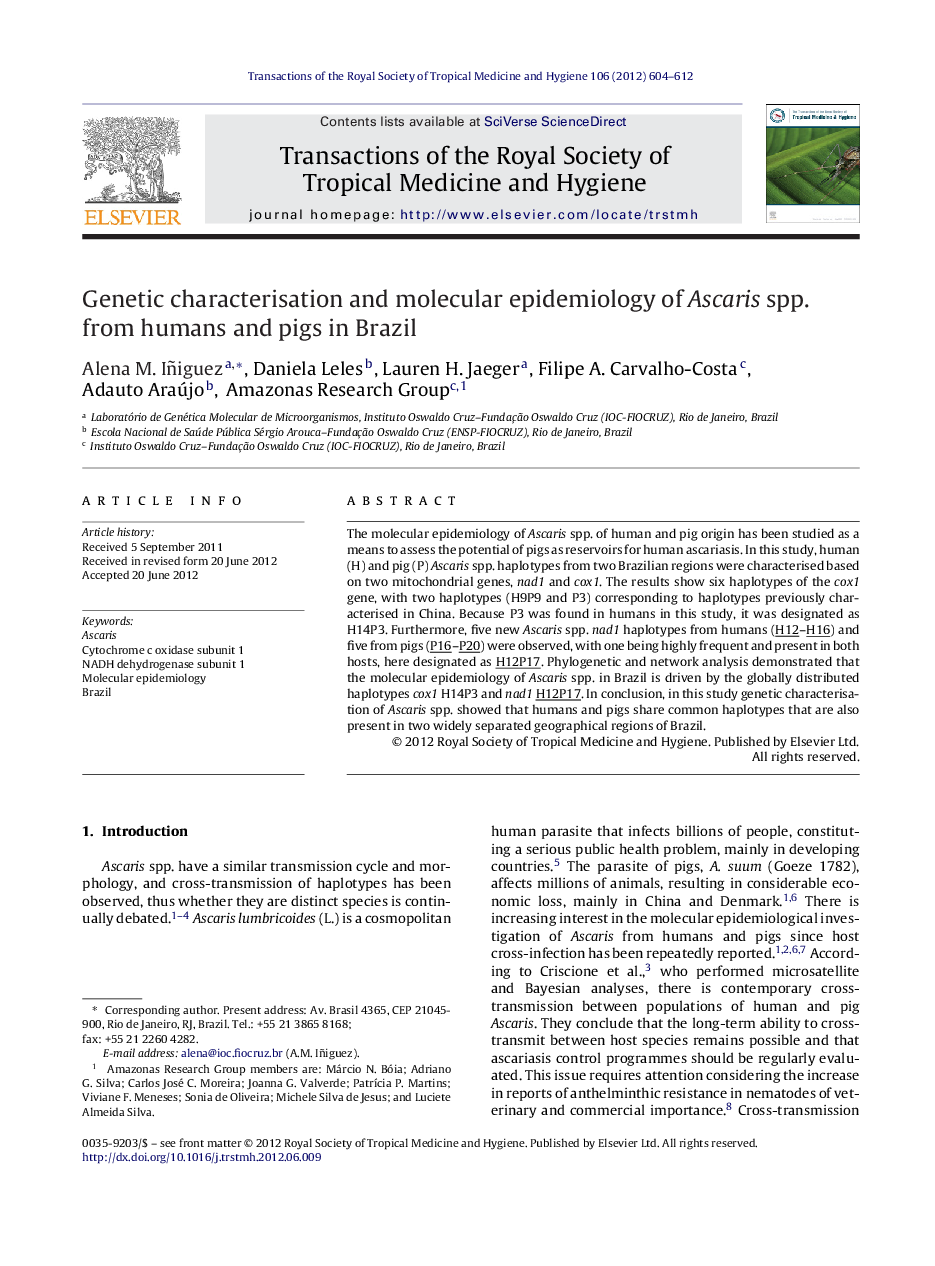| Article ID | Journal | Published Year | Pages | File Type |
|---|---|---|---|---|
| 6137256 | Transactions of the Royal Society of Tropical Medicine and Hygiene | 2012 | 9 Pages |
Abstract
The molecular epidemiology of Ascaris spp. of human and pig origin has been studied as a means to assess the potential of pigs as reservoirs for human ascariasis. In this study, human (H) and pig (P) Ascaris spp. haplotypes from two Brazilian regions were characterised based on two mitochondrial genes, nad1 and cox1. The results show six haplotypes of the cox1 gene, with two haplotypes (H9P9 and P3) corresponding to haplotypes previously characterised in China. Because P3 was found in humans in this study, it was designated as H14P3. Furthermore, five new Ascaris spp. nad1 haplotypes from humans (H12-H16) and five from pigs (P16-P20) were observed, with one being highly frequent and present in both hosts, here designated as H12P17. Phylogenetic and network analysis demonstrated that the molecular epidemiology of Ascaris spp. in Brazil is driven by the globally distributed haplotypes cox1 H14P3 and nad1H12P17. In conclusion, in this study genetic characterisation of Ascaris spp. showed that humans and pigs share common haplotypes that are also present in two widely separated geographical regions of Brazil.
Keywords
Related Topics
Life Sciences
Immunology and Microbiology
Applied Microbiology and Biotechnology
Authors
Alena M. Iñiguez, Daniela Leles, Lauren H. Jaeger, Filipe A. Carvalho-Costa, Adauto Araújo, Amazonas Research Group Amazonas Research Group,
